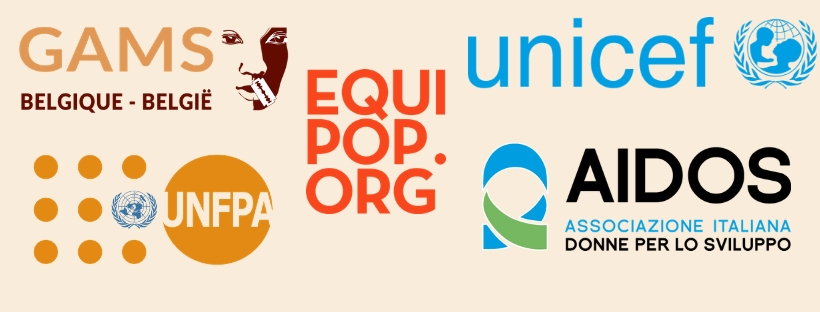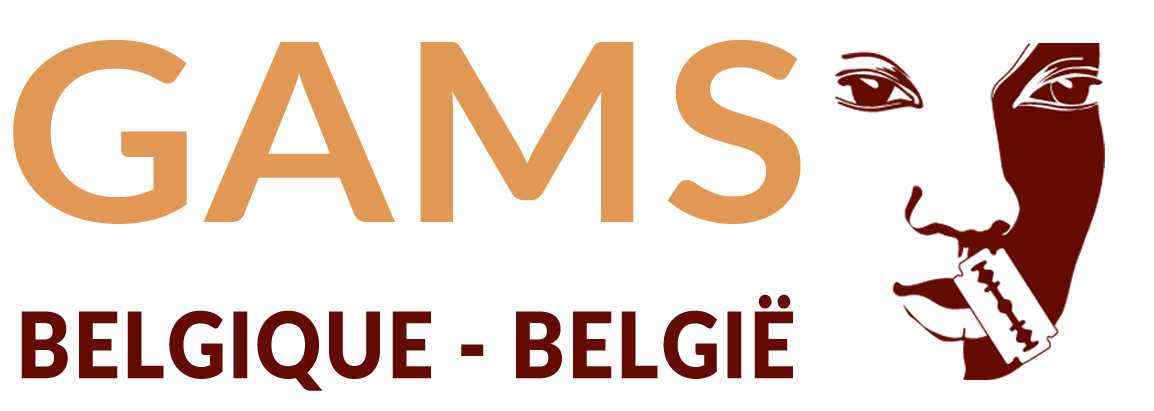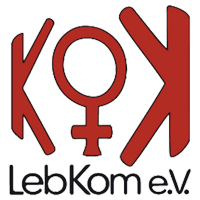Building Bridges between Regions

“Building bridges with local partners to catalyse change in rights of girls and young women in Tanzania ” - FORWARD UK
UNITED KINGDOM - TANZANIA
This project consists in a 10-year partnership between FORWARD UK and a Tanzania based child rights organisation, Children’s Dignity Forum (CDF). This partnership resulted from the establishment of this local NGO from a Tanzanian Diaspora woman who had done her PhD in the UK on child widows and had linked up with FORWARD, an African led women’s rights organisation based in the UK.
The aim of the project was to advance the realisation of the rights of vulnerable girls in rural communities in Tanzania, specifically their rights to education, freedom from violence, sexual and reproductive health (SRH) and access to economic opportunities. The project outcomes were protection of girls from FGM, child marriage and other forms of gender violence; creation of supportive environment and strengthening the capacity of the local partners to design and deliver effective programmes.
The project approach was based on partnership and active involvement of beneficiaries and multiple stakeholders at national and local levels. Girls and young women affected by child marriage, FGM, child motherhood and those at risk were the primary targets. Strategies adopted included peer to peer support, leadership development and access to livelihood opportunities, training and provision of seed money. Girls and young women had access to safe spaces through girls’ camps and clubs and young women’s networks to acquire leadership skills, information and amplify their voices. Community gatekeepers were engaged to help social norms that fuel these practices. Partnerships were established to provide access to support services and safe houses for girls who sought refuge during the FGM season and national advocacy was conducted through the establishment of the Tanzania End Child Marriage Network. Local government officials, statutory professionals including police, health and education officials as well as local community organisations were targeted.
TuWezeshe Akina Dada Africa-UK - Young Women’s Leadership and Empowerment Movement” - FORWARD UK
UNITED KINGDOM – KENYA – UGANDA - TANZANIA - SOMALILAND
TuWezeshe Akina Dada Africa-UK Young Women’s Leadership and Empowerment Movement is a three-year women and girls’ rights project. Operating between July 2016-March 2019, the Project is implemented in five countries; the United Kingdom (including England, Wales and Scotland), Kenya, Uganda, Tanzania and Somaliland. The Project is facilitated by a consortium of four organizations namely FORWARD UK, Akina Mama wa Afrika (AMwA), Sub-Sahara Advisory Panel (SSAP) and Young Women Leaders Institute (YWLI).
The project’s aim is to improve the rights and amplify the actions of East African girls and young women in their fight against all forms of GBV in their countries of origin and of residence. The vision is to raise up a new generation of young women leaders who are capable activists and advocates claiming their rights and freedoms. The project provides a mentoring and leadership development training, to grow the capacity of young women to be change-makers in their communities and nations. Moreover, through social media and social communication platforms, the project seeks to engage participants from all over the world to meet fellow advocates, share ideas, articulate themselves and discover the power of female solidarity as a means of sustainably and effectively transforming communities and cultures.
A key aspect of the project is that it utilises all six regions of Africa. Although Africa is often conceived of as five regions (North, South, East, West and Central Africa), the project recognises the existence and potential of women and girls in the African diaspora, and the ways in which they too are affected by GBV. As such the project seeks to strengthen the links between young women on the continent and in the diaspora, as well as improving their visibility, profile and leadership potential.

“Building bridges between Africa and Europe to tackle FGM. A pilot experience” - AIDOS, GAMS Belgium & Equipop
EUROPE (implemented by partners in Italy, Belgium, France) – AFRICA (including the 11 countries in the UNICEF-UNFPA Joint Programme on FGM
This project is carried out by AIDOS (Italy), GAMS (Belgium) and Equipop (France), and is funded within the UNFPA-UNICEF Joint Programme on FGM/C. The main Goal of the first phase of the Building Bridges project was to increase the effectiveness of actions against FGM/C and improve the living conditions in Europe and in Africa by building bridges between young people from the civil society organisations (CSOs), professionals (media, health, psycho-social, etc.) and communities from targeted African countries and migrant communities, CSOs and relevant professionals in Europe through exchanging, implementing and adapting good practices, positive messages and mutual learning.
Its main objectives are: to improve the quality of the psycho-sexual care for women and girls affected by FGM/C in Africa and Europe (GAMS); contribute to the abandonment of FGM/C globally by involving migrant communities living in Europe and communities in countries of origin (Equipop); and increase the commitment of young people living in Europe and communities in countries of origin to jointly engage for the abandonment of FGM/C globally (AIDOS).
This project had three main components in 2017.
- AIDOS provided trainings and workshops on video production addressed to young African activists (18-30 years old) living both in Africa and Europe, which aim to foster mutual dialogue among young people in order to develop common strategies and tools to promote the abandonment of FGM/C. Participants are motivated to share their personal experience and/or their personal expertise and are asked to cooperate to produce videos about FGM/C that reflect their mutual learning experience, their commitment towards the abandonment of the practice, their suggestions and ideas to facilitate the abandonment of the practice in a building bridges perspective between Africa and Europe.
- The Community of Practice on Female Genital Mutilation (CoP FGM) was initiated through the programme in 2017, by GAMS Belgium. The main activities that such project carries out are three. GAMS set up a Community of practice on FGM with a particular focus on psychosexual care, with the aim to promote the exchange of knowledge and experience between stakeholders in Europe and Africa, in a horizontal and cross-sectoral approach at both local and international level; make techniques, tools and information accessible; identify best practices for improving the quality of interventions for the prevention and management of FGM (including the psycho-sexo area); share field activities with policy makers at National and International level. The CoP has a blog, where interested persons can find information about the CoP, register and read interviews with stakeholders. The members exchange information and experiences through a google group. At the end of 2017, the CoP on FGM counted almost 180 members from 42 countries. Half the members were from Africa and half from Europe. The CoP is moderated by two moderators, one based in Belgium and the other based in Senegal.
- Equipop put in place a series of activities linking communities from Mali and France, in both countries, such as trainings, exchanges of experiences and promising practices, dialogues and discussions and other awareness raising actions with the aim of being more effective and have a cross-border approach to the abandonment of FGM linking diaspora communities and their communities of origin (see description below).

“Protecting the Next Generation” – Equipop
FRANCE – MALI – BURKINA FASO
The French NGO Equilibres & Populations (Equipop) implements a pilot project entitled “Protecting the Next Generation” for the abandonment of FGM in 150 villages in the Kayes region of western Mali. The project aims to reach a total of 250 villages. Since 2006, Equipop has been developing a strategy to involve migrants living in France who come from the project area. The Kayes region is a key emigration region, from which 80% of Malians living in France originate. The migrants, through the financial support they regularly send to their families in Mali, can have a strong influence on their community. Involving them in the abandonment process of FGM is necessary so that they agree with the final decision made in their villages of origin, or at the very least, to secure their neutrality so that they do not challenge the decision.
Associations of migrants are identified in the field with the help of AMSOPT, the Malian NGO in charge of the activities in Mali. In France, Equipop is in charge of mobilising the associations of migrants originating from the villages involved in Mali, and organising debates and awareness-raising sessions on the issue of FGM.
The project brought together around 10 migrants who are actively involved in the abandonment of FGM. A delegation of these migrants travelled to Mali in 2009 to show their support for the abandonment of FGM in their communities. They attended a ceremony of abandonment of FGM and participated in debates organised in villages in the Kayes region. Back in France, debriefing sessions were organised to raise further awareness on the issue of FGM among the Malian diaspora. Migrant associations sign a Charter showing their support for the abandonment of FGM in the villages where they come from. A copy of this charter is given to the villages in Mali. In 2018-2020, the project will keep its activities in Mali with a focus on advocacy and youth participation and will be duplicated in Burkina Faso, in 60 villages of the Fada N'Gourma Region with high prevalence of FGM. As for Mali, the migrants from Burkina Faso will be mobilised to support the process of abandonment of FGM and child marriage in the targeted villages. Equipop will keep working with community radios in France that work in partnership with local radios in both countries to broadcast participatory programmes on FGM.

Filmed Video-Letters”: FGM exchange between Fulani migrants in Belgium and their community in Vélingara - GAMS Belgium
BELGIUM – SENEGAL
The “Filmed Video-Letters” is a project uses an existing communication tool to initiate a dialogue that aims to give migrants a chance to discuss about FGM with their communities of origin. As part of the community, migrants still play a big role in their community decision-making process. To increase the exchange of information and build bridges, in 2015 GAMS Belgium began a video letter project: migrants in Belgium are interacting with the women and men in their villages of origin in Senegal through video messages, in which they will address the issue of FGM and broader issues related to the condition of women and girls.
The “Filmed Video-Letters” project was born from the following observation: migrant men and women, in order to remain in contact with their relatives in their country of origin, regularly use different communication tools: letters, audio cassettes, emails, international calls, videos. Thus, the idea came to produce videos both with migrants and with the communities in their country of origin in order to strengthen the exchange of information between them on the chosen topics.
The method is very simple: a group of men and women, members of the Fulani community in Belgium held a meeting with the assistance of a facilitator from GAMS; they exchanged views on their perception of FGM, on its consequences and its reasons in a video addressed to the Fulani community in Vélingara in Senegal. In Belgium the video tour was edited and verified by the group before the mission in Senegal. Two GAMS facilitators left to go to Senegal, where they showed the video and filmed the immediate reactions of the people of Vélingara during the projection of the film and then the debate following the film. Video equipment was left in Vélingara for the next video exchange. Back in Belgium, the footage filmed in Senegal was added to the Belgian footage. This final video lasting 26 minutes is now used as a support for awareness-raising in the two communities in Belgium and in Senegal.
The “Filmed Video-Letters” is a pilot project that has helped to create a first bridge between Europe and Africa starting on a small scale (the Fulani communities in Belgium and Vélingara). This project will allow a community assessment to be made in order to develop activities to promote the abandonment of the practice of FGM.
The Fulda-Mosocho Project” - LebKom
GERMANY – KENYA/KISII COUNTY
The German NGO LebKom e.V. promotes a sustainable intercultural and intercontinental partnership in support to grassroots women for bettering their living conditions within their cultures and within their families, both in their countries of origin and of residence.
The Fulda-Mosocho Project was started in 2002 with the aim to empower women, reduce violence against women and girls and promote gender equality, by using the VALUE-Centered Approach, based on mutual trust between women and men of the Kisii group - a Kenyan Ethnic group with 98% FGM-prevalence rate - and the German NGO LebKom. Men and women have been trained in equal numbers by a German/Kenyan team of value-centered experts, and have further established the organisation “Enka Enyia“ - New Home. In 2010, the Innocenti Research Centre of UNICEF stated that the Fulda-Mosocho Project has led in its region to reduction of violence against women and girls and to abandoment of FGM. The hand in hand cooperation with Enka Enyia and with thousands of grassroot activists - stakeholders from all levels, having visited VALUE-Centered training units - is spreading to further regions who ask for the same training.
The Fulda-Mosocho Project and its strategy to bring along social change are being used also in Germany, as a result of such intercontinental partnership, to train migrant diaspora communities and people from different sectors to prevent girls from FGM and VAWG in the country.

